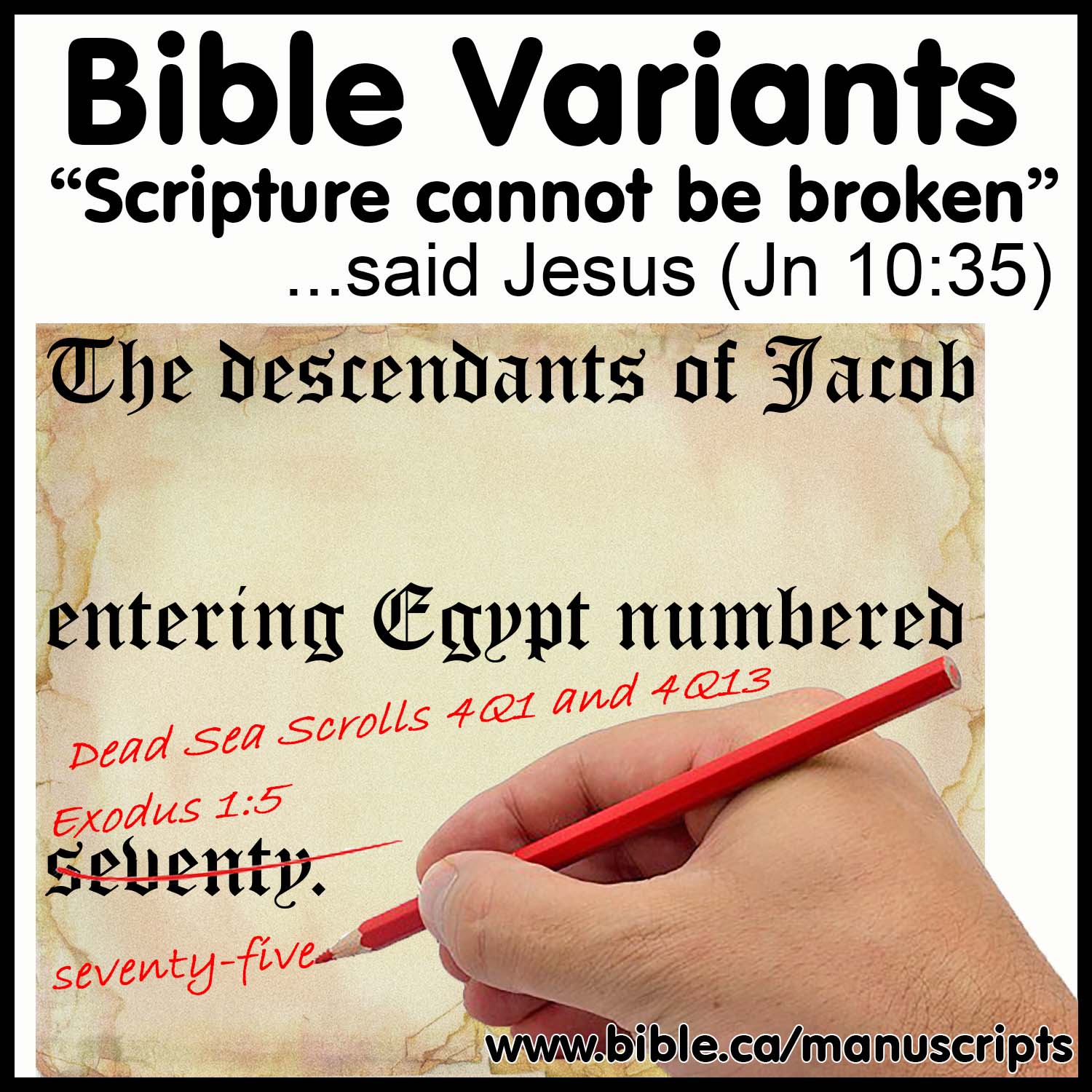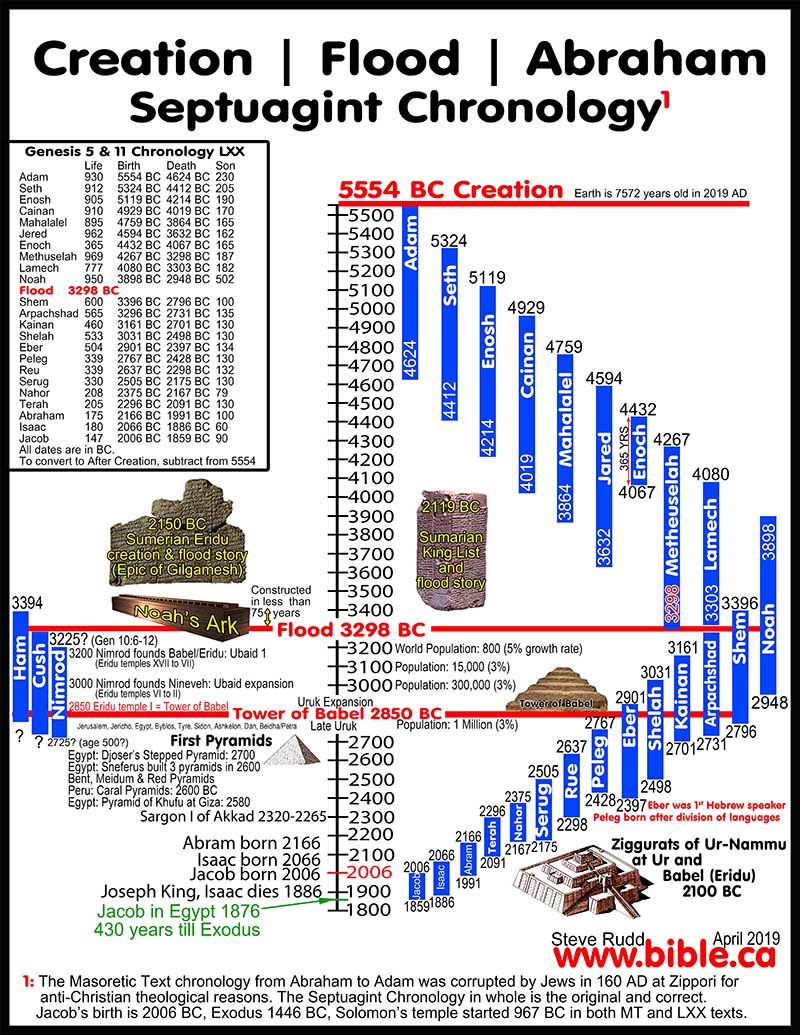Eupolemus
Creation 5307 BC
(Validates the Septuagint)
158 BC
Introduction:
1. Who was Eupolemus:
a. “EUPOLEMUS. A Jewish historian who flourished in Palestine in the mid-2d century B.C.E. He wrote a work in Greek entitled Concerning the Kings in Judea, of which five brief fragments have been preserved. Other works entitled Concerning the Prophecy of Elijah and On the Jews of Assyria are also mentioned in connection with Eupolemus, but for convincing reasons are not now attributed to him. He is confidently identified as the Eupolemus who was a member of the priestly family Accos and sent as an ambassador to Rome by Judas Maccabeus (1 Macc 8:17; 2 Macc 4:11; Josephus JW 12.10.6 §415–16).” (ABD, Eupolemus)
b. “Eupolemus (Εὐπόλεμος, Eupolemos). One of the two deputies (along with Jason) sent by Judas Maccabeus circa 161 bc to establish an alliance with the Romans (1 Macc 8:17; 2 Macc 4:11). He is further identified as son of John, of the family of Accos. The Jewish historian Eupolemus is probably the same person. His work On the Kings in Judaea was quoted in Alexander Polyhistor’s first century bc work On the Jews, which in turn was cited by two early Christian writers, Eusebius of Caesarea (Praep. Evang. 9.26.1; 9.30.1–34.18; 9.34.20; 9.39.1–5) and Clement of Alexandria (Stromata 1.21.130.3; 1.21.141.4; 1.23.153.4). The five surviving fragments of his work expand on biblical narrative; for example, the longest fragment claims to report correspondence between Solomon and two other rulers, Vaphres King of Egypt and Souron (Hiram) King of Tyre.” (LBD, Eupolemus)
2. Eupolemus [yoo-pol-uh-mus]: a Jewish ambassador sent by Judas Maccabeus to Rome:
a. "And so Judas selected Eupolemus son of John of Accos and Jason son of Eleazar and sent them to Rome to establish with them a friendship and alliance, and to lift the yoke from them because they saw the kingdom of the Greeks oppressing Israel with slavery And they went to Rome, and the journey was very long, and they entered into the senate chamber and reported, “Judas, also called Maccabeus, and his brothers and the population of the Judeans sent us to you to establish with you an alliance and peace, and that we might be written in with your allies and friends.”" (1 Maccabees 8:17–20)
Eupolemus dates creation to 5307 BC validating the Septuagint
1. “Again, Eupolemus in a work of similar scope says that the total number of years from Adam to the fifth year of king Demetrius (= the twelfth year of Ptolemy’s reign in Egypt) comes to 5149 years. (5) From the point when Moses led the Jews out of Egypt to the same point comprises in all 1580 years. From that date to Cnaeus Domitius and Asinius holding the office of consul at Rome comprises 120 years. [~40 BC]” (Clement of Alexandria, Misc. 1.21.141, quoting Eupolemus who wrote in 158 BC)
a. Eupolemus dates creation to 5th year (158 BC) of reign of Demetrius I Soter (162-150 BC) at 5307 BC
b. Eupolemus: Creation to year 5 of Demetrius I Soter = 5149 years = (5149 + 158 BC) = 5307 BC. This is very close to the LXX at 5554 BC and far from MT at 4174 BC.
c. Eupolemus: Exodus to year 5 of Demetrius I Soter = 1580 years = (1580 + 158 BC) = 1738 BC. Actual exodus was 1446 BC. His calculation is early by 292 years.
|
The Septuagint LXX “Scripture Cannot Be Broken” |
|||||
|
Start Here: Master Introduction and Index |
|||||
|
Six Bible Manuscripts |
|||||
|
1446 BC Sinai Text (ST) |
1050 BC Samuel’s Text (SNT) |
623 BC Samaritan (SP) |
458 BC Ezra’s Text (XIV) |
282 BC Septuagint (LXX) |
160 AD Masoretic (MT) |
|
Research Tools |
|||||
|
Steve Rudd, November 2017 AD: Contact the author for comments, input or corrections |
|||||
By Steve Rudd: November 2017: Contact the author for comments, input or corrections.
Go to: Main Bible Manuscripts Page











